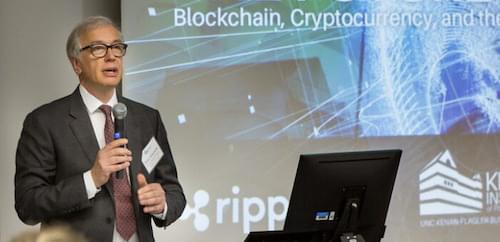Eric Ghysels made a name for himself in financial econometrics and time-series analysis. Now he translates financial models into quantum algorithms.
Economist Eric Ghysels has spent most of his career fascinated by a fundamental problem in the financial industry: figuring out how to put a price on any financial asset whose future value depends on market conditions. Ghysels, a professor at the University of North Carolina at Chapel Hill, has now set himself a new problem: studying the impact that quantum computing could have on solving asset pricing, portfolio optimization, and other computationally intensive financial problems.
He admits that nobody knows when quantum computers will have commercially viable applications, but, he says, it’s important to invest now. Physics Magazine spoke with Ghysels to learn why.




